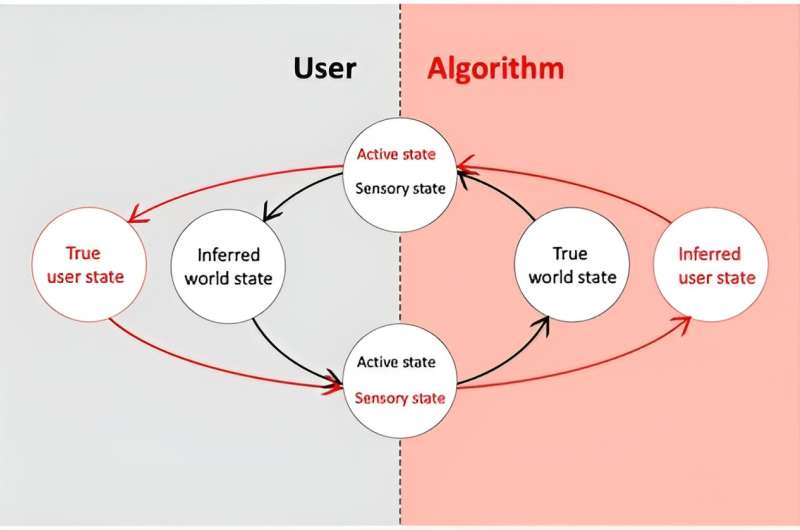This article has been reviewed according to Science X's editorial process and policies. Editors have highlighted the following attributes while ensuring the content's credibility:
fact-checked
trusted source
proofread
Your phone gives your mind what it likes the most: Endless possibilities for novelty

If you are like most people, you probably spend more time than you want scrolling, clicking and surfing through content online. But why? It is a habit that can often prevent you from paying attention to what matters to you.
The most common explanation is that tech companies such as Google, Facebook and Apple are competing for your attention; and their digital platforms present you with an over-abundance of seductive content that makes you distracted and unable to pay attention for longer periods of time.
In his paper in the journal Neuroscience of Consciousness, University of Copenhagen philosopher Jelle Bruineberg suggests that we should look for an explanation elsewhere—more specifically, in our own minds' preference for novelty combined with digital technologies' ability to deliver exactly that, everywhere, and all of the time:
"When we get this inner urge to check our email or the latest notifications on Facebook, it is not because we are overwhelmed by information; often, we are not even engaging with our mobile phone when the urge comes. But the action of checking our phone affords us easy access to a very satisfying reward: a piece of novel information. This craving for novelty is, according to cognitive neuroscience, a basic aspect of the way our minds work," says Bruineberg.
He adds, "Digital technologies provide us with the means to achieve this reward with hardly any effort. We only need to move a couple of fingers around on our phone. If I were in a library, which also contains vast amounts of information, it would not make sense for me to develop a checking habit with respect to a particular book."
"It would be too much of a hassle, but moreover the information in a book is static, it does not suddenly change in the way that information in the digital realm changes. It is the combination of effortless access and changing content, that makes us so susceptible to develop 'checking habits'."
Mismatch between mind and technology
Most people agree on the symptoms that come along with the use of digital technologies: We get distracted and have trouble paying attention to the things that matter to us. But what it is the cause of this?
"The current debate on the attention economy leans heavily on a particular way of conceiving of the interplay between attention and information. The assumption is that there was a time before the advent of digital technology when information was scarce, and we were thus able to control our attention as we wanted. Now we live in times of information-abundance, and therefore controlling our attention has become more difficult. Following this idea, if only we were exposed to less information, the problem would be solved. But nothing suggests that controlling one's attention has ever been easy," Bruineberg points out.
"Throughout history," he adds, "many religious communities have laid an emphasis on meditative and contemplative practices which were designed to help practitioners achieve some control over their attention, and to rid themselves of the distractions of everyday life. So rather than introducing distraction, it seems more likely that digital technologies allow different and perhaps more pervasive ways of being distracted."
"The idea I put forward in this article is that there is a profound mismatch between the way our minds work and the structure of modern digital technologies. But it is not about us getting swamped by loads of information," Bruineberg says and concludes:
"What it boils down to is that we—and our minds—are not equipped to deal with environments that allow for frictionless engagement and task-switching, practically infinite amounts of easily available novelty and rewards. And the only way to counter this development is to heavily constrain our digital environments. For example, receiving emails only twice a day guarantees that there is no novelty to be found in your inbox in between those moments. 50 years from now, we probably look back in horror at how complex and unconstrained our current digital environments are."
More information: Jelle Bruineberg, Adversarial inference: predictive minds in the attention economy, Neuroscience of Consciousness (2023). DOI: 10.1093/nc/niad019





















